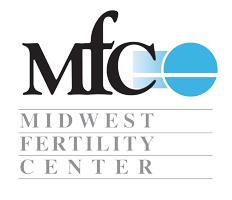Pregnancy is a beautiful and transformative experience, but it can also be physically and emotionally demanding. One common symptom that many expectant mothers experience is fatigue. Understanding what is normal in terms of fatigue during pregnancy can help alleviate concerns and ensure a smoother journey for both mother and baby.
Fatigue is a common complaint during pregnancy, especially in the first and third trimesters. The body is working hard to support the growth and development of the baby, which can leave expectant mothers feeling tired and drained. Additionally, hormonal changes, increased blood production, and the physical demands of carrying extra weight can contribute to feelings of exhaustion.
In the first trimester, fatigue is often attributed to the rapid increase in hormone levels, particularly progesterone. This hormone has a sedating effect and can make expectant mothers feel more tired than usual. Additionally, the body is working hard to establish the placenta and support the early development of the baby, which can also contribute to feelings of fatigue.
During the third trimester, as the baby grows larger and the body prepares for labor and delivery, fatigue can return. Carrying the extra weight of the baby, amniotic fluid, and placenta can be physically taxing, leading to increased feelings of tiredness. Discomfort while sleeping due to the size of the belly, frequent trips to the bathroom, and general physical discomfort can also disrupt sleep and contribute to fatigue.
So, what is considered normal when it comes to fatigue during pregnancy? It’s important to remember that every woman’s experience is unique, and what is normal for one person may not be for another. However, feeling more tired than usual, especially in the first and third trimesters, is generally considered normal.
It’s essential for expectant mothers to listen to their bodies and prioritize rest. Taking short naps, going to bed earlier, and allowing oneself to slow down when needed can help manage feelings of fatigue. Additionally, maintaining a healthy and balanced diet, staying hydrated, and engaging in gentle exercise, such as prenatal yoga or walking, can help boost energy levels.
While fatigue is a common and normal part of pregnancy, there are instances where it may be a cause for concern. If fatigue is accompanied by other symptoms such as severe headaches, dizziness, blurred vision, or chest pain, it’s important to seek medical attention promptly, as these could be signs of a more serious condition.
Fatigue during pregnancy is a common and normal experience for many expectant mothers. Understanding the factors that contribute to fatigue and knowing when to seek medical advice https://mfcfamily.com can help alleviate concerns and ensure a healthier, more comfortable pregnancy journey. By listening to their bodies, prioritizing rest, and seeking support when needed, expectant mothers can navigate the challenges of fatigue and focus on the joy of bringing new life into the world.

